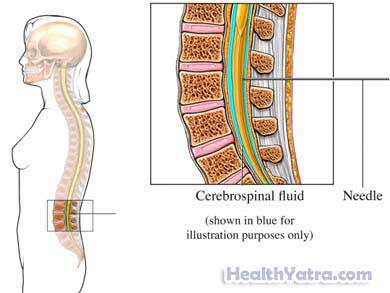Definition
Reyes syndrome is a serious but rare condition. It causes a build up of fat and swelling in most organs. Reyes is most harmful to the liver and and brain.
It tends to occur during recovery from a viral infection. Early treatment is important for a recovery.
Causes
The cause of Reyes syndrome is unknown.
Risk Factors
Reyes occurs most often in children aged 2-16 years but can occur in anyone. Factors that may increase the risk of Reyes syndrome include:
- Recent viral illness, including:
- Upper respiratory infection
- Influenza (the flu)
- Chickenpox
- Use of aspirin or other salicylates especially in children during viral illness (like flu or chickenpox)
- Fatty acid oxidation disorder
- Exposure to certain toxins
Symptoms
Symptoms usually occur after a viral illness and may include:
- Frequent or persistent vomiting
- Drowsiness and fatigue
- Personality changes, such as irritability and aggression
- Confusion
- Disordered speech
- Hallucinations
- Convulsions
- Hyperventilation—rapid or deep breathing
- Loss of consciousness
Later symptoms may progress to:
- Coma
- Seizures
- Inability to breathe without help
Call a doctor immediately if you or your child has any of these symptoms, especially after a viral infection.
Diagnosis
The doctor will ask about your symptoms and medical history. A physical exam will be done. Blood tests will be done to evaluate the liver function. To eliminate possibility of other illnesses or disease, your doctor may order tests such as:
- Spinal tap —to look for infections of the spine or brain
- Liver biopsy
- Metabolic tests

Treatment
Early diagnosis and treatment are important for a successful recovery.
Treatment is focused on protecting the brain and other organs from damage. Options include:
Medication
Medications may help to:
- Decrease inflammation
- Lower pressure of fluid in the brain
- Prevent seizures
- Reduce vomiting
- Reduce blood ammonia levels (may also require dialysis)
Glucose and electrolytes may also be given through IV.
Monitoring
The brain, heart, and lungs will be carefully monitored. This will help the doctor begin supportive treatments as soon as possible.
Advanced Care
As the condition progresses more care may be needed. Some advanced care options include:
- Ventilator —to take over breathing
- Drainage procedure or decompression craniotomy —to reduce pressure in the brain
Prevention
The exact cause of Reyes is not known but the following may decrease the risk of Reyes syndrome:
- Do not give aspirin to children and teens with a current or recent viral infection. Check with your doctor before giving aspirin to a child or teen.
- Avoid giving children and teens medications that contain salicylates. Examples include Alka-Seltzer, Anacin, Bufferin, and Pepto-Bismol.
